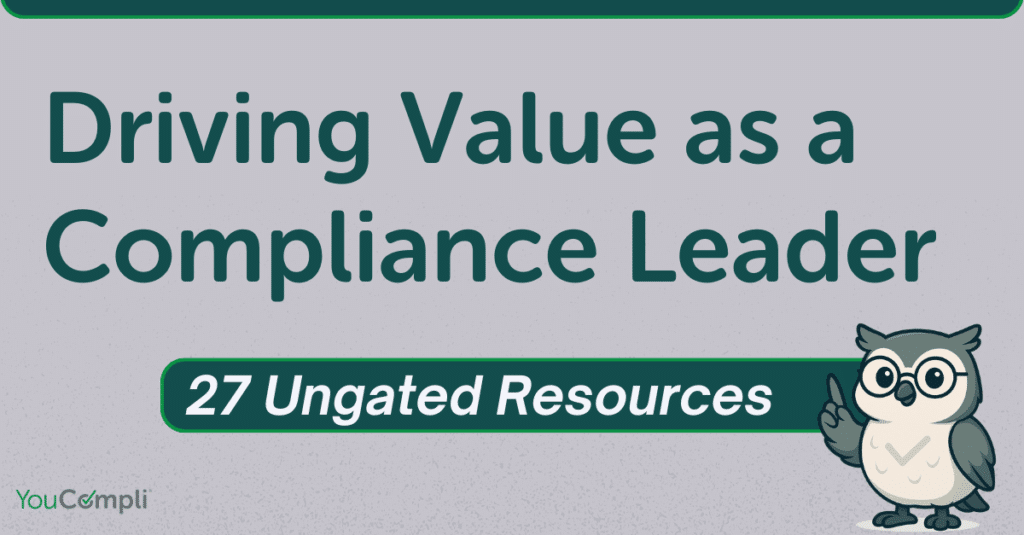
As a healthcare compliance professional, you are tasked with navigating complex regulations, ensuring your organization adheres to the highest standards of ethical and legal practices, and protecting patient safety. Demonstrating competence, building credibility, and fostering collaboration are key to success in your role. These qualities enhance your effectiveness and ensure you are a valuable and trusted partner within an organization.
Demonstrating Competence
In the complex landscape of healthcare regulations, we cannot possibly know the answer to every question we receive at the moment. That said, not knowing the answer does NOT equate to a lack of competence. Competence is best displayed by knowing where to go to provide a full and comprehensive response to regulatory questions, and what questions to ask yourself to ensure a comprehensive response based on common healthcare rules and regulations.

Here are some tips to clearly demonstrate your competence as a compliance professional:
- Know what rules apply and where to go to find answers!
- Understand the impacts of federal, state, and accreditation standards that affect organizations. Many responses from compliance professionals require referencing and reviewing one or many of the regulatory bodies to draft a complete response. Do you need to reference state scopes of practice, federal rules like Conditions of Participation, or accreditation standards?
- Understand that outside of federal and state rules and regulations, any organization-specific policy must be followed and can be cited in surveys and investigations. If your policies are stricter or include more clearly defined timeframes than the regulations, you should incorporate all applicable organizational policies into your response for operational teams to review, address, and update as needed.
- Communicate clearly and effectively!
- Respond in a manner appropriate to the person asking the question. Anyone can copy and paste rules, regulations, and policies – but it’s our role to take it one step further. When the risk of non-compliance exists, we need to provide guidance and insight on what organizations are getting right or where an update or change may be necessary.
- Stay informed!
- In addition to monitoring, reviewing, making recommendations, and identifying areas of non-compliance, professionals must proactively educate themselves. Be sure to stay informed on the latest industry trends, best practices, and regulatory changes and trends that may impact your organization.
- Set the tone!
- Are surveyors onsite? Surprise investigation? How you react, respond, and approach stressful situations as a compliance professional will set the tone for all others included in those activities. No one responds well to those who immediately show a state of irritation, apprehension, and anxiety with unplanned compliance activities. Approach each unplanned survey, inspection, and investigation as a learning opportunity and present a professional, calm, and collected approach when working in these stressful situations.
Building Credibility & Fostering Collaboration
To make advancements in the state of compliance in your organization, you need people to engage with and trust in your ability to help them improve upon compliance challenges.
Build your credibility and foster collaboration by:
- Building relationships and being present!
- Credibility is built on trust, and trust is earned through relationships – interacting, working, and engaging with teams. Take the time to build rapport with colleagues across various departments. Be approachable, listen actively, and show empathy for the challenges others face in their roles. By being a trusted advisor rather than a distant enforcer, you can encourage open dialogue and foster a culture of compliance that is collaborative rather than adversarial. In my opinion – compliance MUST be visible, be present, and be engaging directly, regularly, and frequently across ALL LEVELS of the organization.
- Being transparent!
- Share the state of compliance openly within departments of the organization. This allows staff at all levels to identify where compliance risks lie and where great achievements have been made. Risks and progress towards goals should regularly be reported to organizational staff where appropriate. Be sure to identify compliance challenges and frame them as opportunities to grow – and celebrate the wins. Showcase those successes!
- Staying adaptable and open to change!
- Compliance professionals must help teams be adaptable and stay positive in what can be a field that tends to focus on the negative. They can help facilitate these mindsets by staying open to feedback and continuously seeking ways to improve the organization’s compliance process and approach. Ask the teams you’re working with what’s going well and what your compliance department may be able to improve upon. Then report back to them about your progress to show that you are interested in being a strategic partner and can follow your own advice.
- Being accountable!
- Do what you say you are going to do! It’s that simple. So often, compliance teams are stretched to manage so many activities and it feels like they can’t get everything done. Still, be accountable for what you communicate. Do what you say you are going to do. If any delays arise that impact your ability to complete specific requests, tell people as openly and completely as possible.
Compliance is not just about enforcing rules – it is about guiding your organization towards a culture of integrity and excellence. By embodying these principles, you can show competence, credibility, and collaboration and help ensure your organization thrives in an increasingly complex healthcare environment.
Amy Laufmann is client success manager at YouCompli. She has 10+ years of experience in healthcare compliance and operations and is passionate about helping healthcare organizations operate better and deliver better patient outcomes.

Take Free RL3M Assessment (Regulatory Lifecycle Management Maturity Model)
Download our Latest Whitepaper

27 Ungated Resources for Compliance Leaders and Teams
Compliance professionals sometimes feel undervalued in comparison to other functions in their organization. They think leaders and colleagues don’t really understand what they do.
These resources will help. Packed with ideas, tips and recommendations, these pieces were written by professionals with many years of compliance experience.
You can quickly skim for articles that relate to your needs and interests. Bookmark this page as a reference for future questions or projects.


